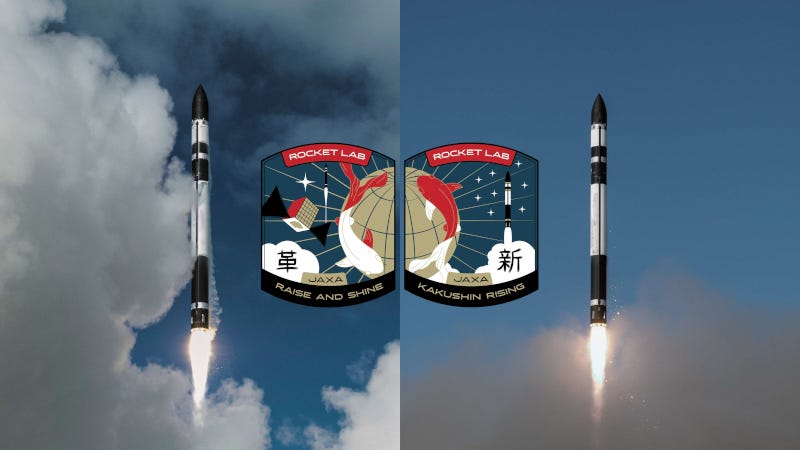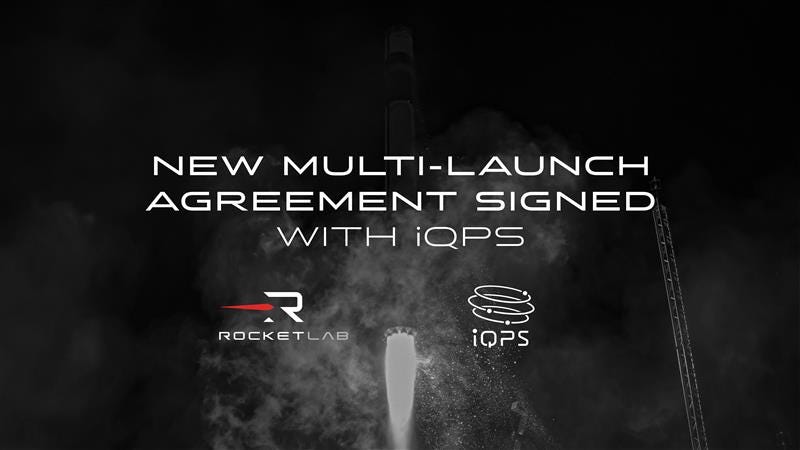Two Multi-Launch Agreements Inked by Rocket Lab
JAXA, iQPS to Utilize Electron Rockets for Orbita Delivery
A pair of multi-launch agreements were recently announced by New Zealand-based Rocket Lab. The Japanese Space Agency JAXA and iQPS have inked deals for dedicated Electron launches.
“These missions are a demonstration of Electron’s global importance - supporting the growth of Japan’s space industry with launch on a U.S. rocket from a New Zealand launch site.”
Sir Peter Beck, Rocket Lab
Launching from Rocket Lab Launch Complex 1 in New Zealand, the two Electron missions will deploy satellites for JAXA’s Innovative Satellite Technology Demonstration Program. The first launch, scheduled from December 2025, will deploy the agency’s RApid Innovative payload demonstration SatellitE-4 (RAISE-4) spacecraft, a single satellite that will demonstrate eight technologies developed by private companies, universities, and research institutions throughout Japan.
The second launch, scheduled for 2026, is a JAXA-manifested rideshare of eight separate spacecraft that includes educational small sats, an ocean monitoring satellite, a demonstration satellite for ultra-small multispectral cameras, and a deployable antenna that can be packed tightly using origami folding techniques and unfurled to 25 times its size.
“It’s an incredible honor to be entrusted by JAXA to further their goals of innovation and development for Japan. These missions are a demonstration of Electron’s global importance - supporting the growth of Japan’s space industry with launch on a U.S. rocket from a New Zealand launch site – and we’re proud to be entrusted to deliver them,” said Rocket Lab founder and CEO Sir Peter Beck. “Japanese satellite operators have long turned to Electron for its reliability and responsiveness since its earliest launches - whether its constellation-building for Japan’s new wave of commercial satellite operators, or bespoke missions requiring responsive mission planning and highly-accurate payload deployment.”
The other multi-launch contract includes three dedicated Electron missions that will launch no earlier than 2026, also from Launch Complex 1. With four dedicated missions already booked by iQPS on Electron, these three additional missions bring the total number of upcoming launches for iQPS to seven.
Each dedicated launch will deploy a single synthetic aperture radar (SAR) satellite from a Rocket Lab Motorized Lightband separation system – demonstrating Rocket Lab’s vertical integration across launch and space systems that improves reliability and streamlines the launch process for its customers.
“We’re proud to be expanding our partnership with iQPS to deliver their QPS-SAR satellites to orbit. By choosing both Electron and our separation systems to deploy their satellites, iQPS takes advantage of a highly-integrated launch service that maximizes reliability and streamlines operations for faster access to space to grow their constellation,” Beck said. “It’s a privilege to continue to deliver this for iQPS across our missions to date and the ones to come.”
“In 2025, we successfully deployed four satellites, QPS-SAR-9 through QPS-SAR-12, into their planned orbits aboard Electron. This outcome was exactly as we had anticipated, and it further reaffirmed our confidence in the rocket’s reliability,” said iQPS CEO Dr. Shunsuke Onishi. “We are very pleased to have now signed an additional contract for the launch of three more satellites on Electron. This agreement marks an important step toward the realization of our QPS-SAR constellation. We will continue to make steady progress with unwavering dedication to achieving this goal.”
As international orders for Electron’s responsive launch service continue to grow, Rocket Lab has increased its production and launch cadence to meet the demand for 20+ launches in 2025. Rocket Lab has successfully launched four missions for iQPS to date this year, including two missions launched back-to-back in less than four weeks between May and June.
Rocket Lab’s next launch for iQPS is scheduled to take place not earlier than November. Further information about the launch will be announced in the coming days.




